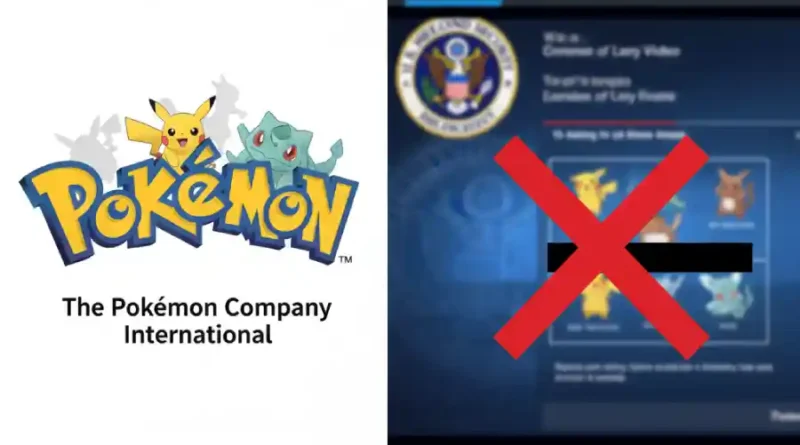Pokémon Company Denounces U.S. Homeland Security Video Misusing Brand
In late September 2025, a major controversy erupted when the U.S. Department of Homeland Security (DHS) released a video promoting Immigration and Customs Enforcement (ICE) operations using iconic elements of the Pokémon brand. The video paired ICE raids with the famed Pokémon theme song, used graphics reminiscent of Pokémon trading cards, and superimposed the phrase “Gotta Catch ’Em All”—one of the franchise’s signature slogans.
What Exactly Happened
- The video mixes real footage of ICE agents detaining individuals with animated clips from the Pokémon TV show—most notably featuring Ash Ketchum.
- It uses design elements familiar to Pokémon fans: the franchise’s font colors, layouts mimicking the game’s trading cards, and visual language aligned with Pokémon’s aesthetic.
- It ends with “mock Pokémon cards” for people arrested under ICE, labeling them with alleged crimes and making them part of a “Worst of the Worst” segment.
Pokémon’s Response
The Pokémon Company, which owns the rights to the brand, issued a clear statement: they did not approve of or participate in the creation, distribution, or authorization of the video. Their intellectual property was used without permission.
They distanced themselves from the message and expressed concern, but as of the latest updates, they have not filed a lawsuit or taken formal legal action.
Public & Legal Reactions
The video sparked widespread backlash—from fans, media outlets, and legal experts—on several fronts:
- Moral/ethical concern: Many critics argue that using a beloved children’s entertainment brand to promote something as serious and contentious as immigration enforcement trivializes human suffering and crosses ethical boundaries. Hell, mocking detainees with trading-card visuals doesn’t sit well with many.
- Intellectual property (IP) issues: Experts point out that using the theme song, characters, slogans, and visuals without permission may constitute copyright infringement. Whether The Pokémon Company will push back legally remains uncertain.
- Communication strategy criticism: Some see this as part of DHS’s broader use of memes, pop culture references, and internet culture to disseminate immigration policy messaging. While this may boost engagement or views, it also risks serious backlash when the content misaligns with public sentiment.
Why Pokémon Might Hesitate to Sue
There are several practical reasons observers believe The Pokémon Company might avoid taking legal action against DHS—or might do so only behind closed doors:
- Publicity concerns: Pokémon as a brand is typically family-friendly and avoids getting embroiled in political controversies. Opening a public legal fight with the U.S. government could bring more attention than they desire.
- Legal complexity & jurisdiction: Suing a government entity can be legally complex, especially given doctrines like sovereign immunity, and it could drag into many overlapping areas of law.
- Risk to personnel: A former legal executive of Pokémon has noted that many of Pokémon’s U.S.-based executives hold green cards or other immigration-tied statuses. There’s speculation this could create vulnerabilities or political pressure that the company would prefer to avoid.
Intersection with Related Keywords
- Pokémon US Brand / Pokémon Brand USA / Pokémon USA Brand: This controversy highlights how tightly the brand is identified in the U.S. The brand’s trademark, its characters, songs, slogans—all are strongly associated with the U.S. audience and legal system. Misuse of such branding in U.S.-based governmental content has triggered this brand protection issue.
- Homeland Security Pakistan: While this event involves U.S. Homeland Security, it raises questions for other countries, including Pakistan, about how government agencies use foreign pop culture branding or IP in public messaging. If a similar situation occurred in Pakistan—say, using a Pokémon theme in a government video—the legal and public opinion dynamics might differ, but the underlying issues of IP rights and ethics are comparable.
- Pokémon CS GO: (If you meant Pokémon GO, the mobile game, or mixing with “CS-GO” style military imagery) Though this video does not involve the game Pokémon GO, the kind of militarized imagery—raids, arrests—used in the DHS video can conjure stark, even uncomfortable contrasts with the joyful, exploratory spirit of Pokémon GO. Some critics might draw parallels: using a playful game brand in serious, real-world enforcement contexts is jarring.
Broader Implications & Conclusion
This incident is more than a copyright dispute; it cuts across brand ethics, government communication, and public trust.
- It underscores how powerful nostalgia and cultural brands can be in influencing public perception. Using a children’s franchise for a controversial policy raises questions of appropriateness.
- It shows the growth of government agencies employing viral content strategies—memes, internet culture—to push messages, especially around topics as divisive as immigration. But with that comes risk: misuse, backlash, and potential legal exposure.
- For brands (like Pokémon), there’s a balancing act between defending IP and avoiding being dragged into partisan battles. For audiences, there’s a need for awareness: media and government content can blend entertainment with policy messaging in ways that obscure the ethical dimensions.
In conclusion, the DHS video shows just how fraught it can be when governmental authority appropriates a globally recognized, beloved entertainment brand without permission. Pokémon’s strong disavowal sends a message that even powerful institutions must respect IP rights—and that brand identity isn’t something to be repurposed lightly, especially when real human lives are involved.
